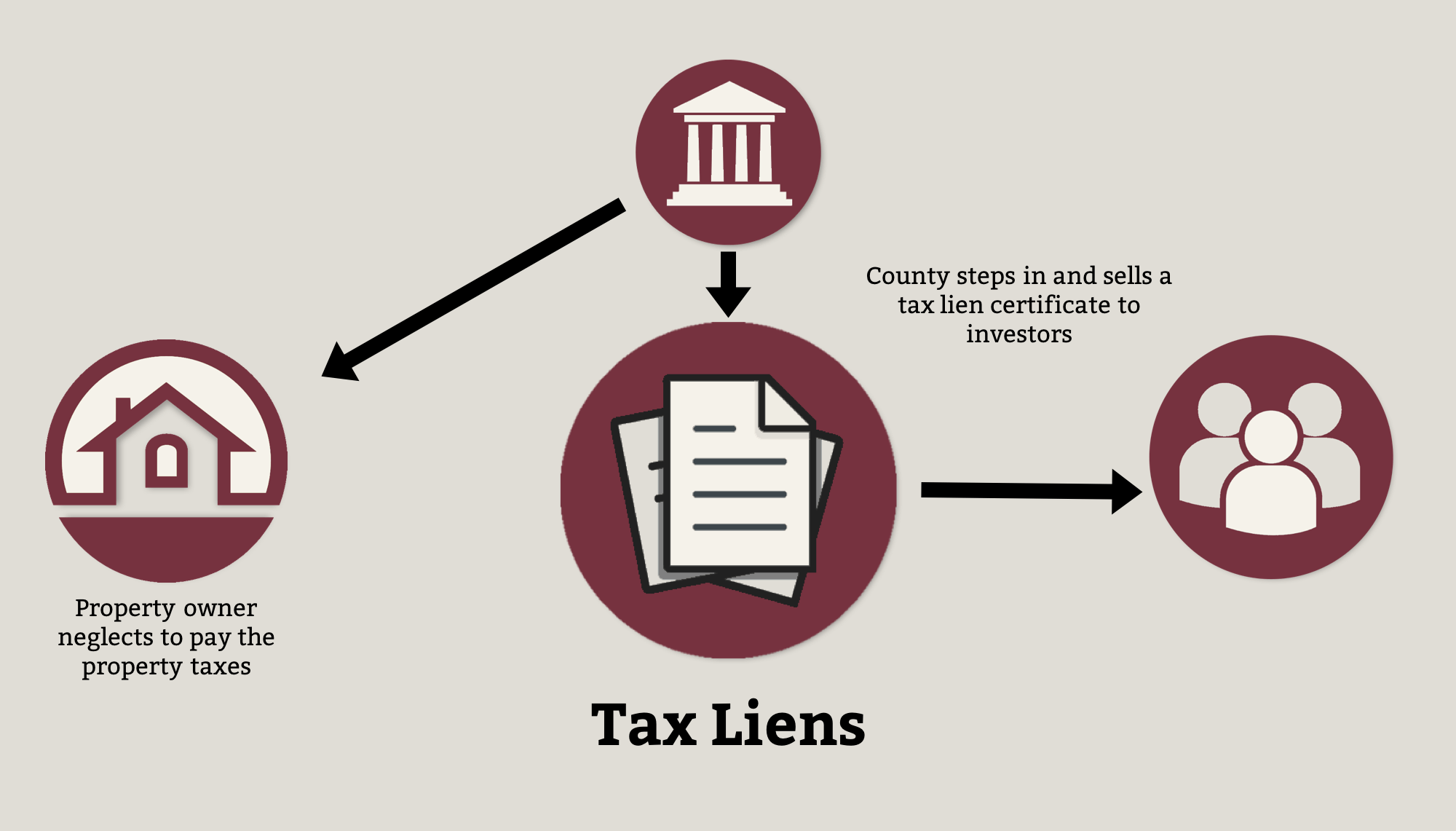All Categories
Featured
If you have an interest in the tax lien foreclosure process, you should contact an attorney so you understand and consider the risks of this kind of financial investment. - learn tax lien investing
Tax obligation lien sales are one manner in which cities and areas try to recoup several of the general public bucks they have actually invested maintaining these homes deserted by personal proprietors. Yet, as we'll describe in this post,. As soon as home taxes are thought about delinquent, city governments commonly concentrate on providing notice of delinquency and trying to collect the unsettled quantities from the proprietor.
Nonetheless, this procedure typically takes years. If an owner has actually walked away and is resistant to pay taxes or maintain the property, the city needs to invest tax obligation dollars to maintain the residential property. These costsboarding up the structure, cutting disordered grass and weeds, replying to fire and police gets in touch with the building, and moreadd up

Owners who have actually fallen on difficult times absolutely require every effort to maintain them out of delinquency and in their homes. Usually, if the residential or commercial property is vacant and scrubby, we should presume the proprietor has actually chosen to desert their interest in the home and that they are "unwilling" to pay (though conditions previously in the procedure may have required their hand).
Learn Tax Lien Investing
Take, as an example, a single-family home where the proprietor has actually time out of mind left. For years the regional federal government has had to step in and eliminate waste discarded in the yard, board up the doors and windows, and react to calls regarding immoral task on the property. All these services cost the city government taxpayer dollars.
In many states, those costs can be gathered likewise as the unpaid taxes, but not in all. (Something that Area Progression strongly supports for.) Ultimately, the complete financial debt comes to be above what the home could cost. In a tax lien sale (or tax obligation certificate sale) the local government typically holds a public auction where the winning prospective buyer accepts pay the most money for the right to implement the tax obligation lien, beginning with a minimum bid of a minimum of the taxes owned, plus applicable interest, charges, and expenses.

When a government offers the tax lien they are typically offering to a personal purchaser the city government's authority to gather the debt in exchange for ahead of time repayment of the tax obligations owed. The purchaser's purchase generally consists of the capacity to gain future passion, along with recoup relevant fees and costs incurred by the purchaser, if the building owner pays the tax obligation financial obligation.
This is, in essence, privatization of a core federal government feature: tax collection. Tax lien sales are particularly negative when it involves uninhabited, deserted, and worn-out residential properties since they prolong the period prior to a home can be relocated right into the hands of a brand-new, a lot more accountable owner. Personal tax lien purchasers hold the financial obligation, but they do not have the titlethe legal right to possession of the propertyand oftentimes, they have no passion in getting it.
Tax Lien Investment Funds
Thinking about spending plan cuts, neighborhood federal governments in lots of states have minimized internal real estate tax collection and enforcement initiatives and looked to tax lien sales as a fast infusion of earnings - tax lien investing crash course (property tax lien investing). Several regions select or are mandated by the state to market tax obligation liens due to the fact that it outsources collection and typically generates extremely required cash previously in the collection process
By moving the city government's passion in and enforcement of the tax obligation lien to an exclusive purchaser, local federal governments lose much of their flexibility: flexibility to get uninhabited residential or commercial properties that the private market doesn't want, or to assist the owner stay clear of losing their residential or commercial property. With vacant buildings, there is a much higher chance that the exclusive customer isn't thinking about the home itself.
Tax obligation lien sales can create damage in historically disinvested locations. In a clinically depressed housing market, fewer proprietors have the ability to redeem the quantity of the financial obligation sold to a tax lien purchaser. These locations are ripe for a different kind of tax lien investorspeculative proprietors looking for to acquire homes on the affordable by seizing on the residential or commercial property tax lien, bleeding what little equity is left by renting a subpar building to prone tenants, and after that deserting the residential property when they've earned back their financial investment.

Not all state laws provide local governments the power to interfere in this cycle. In either case, the residential or commercial property stays vacant and in limbo, all the while imposing considerable costs on its next-door neighbors and taxpayers. It's understandable that numerous city governments transform to tax lien sales due to the fact that they aid fund necessary civil services.
If the city government instead sells the home (also known as the "tax obligation act"), as opposed to the tax obligation financial debt, then they are in control of what occurs to the home and the enforcement process if the owner remains to not pay the real estate tax owed. The government will give the proprietor a sensible time to pay back the tax debt, after which the federal government will confiscate its interest in the tax lien and the owner's right of redemption.
From their beginning, these auctions were places for financiers to benefit with exploitation. In very early 20th-century cities, infamous "tax obligation sharks" like Chicago's Jacob Glos and New York's Charles Wiltsie amassed fortunes by getting up ratings of tax liens on property homes, charging their proprietors exorbitant total up to eliminate the lien, or waiting up until the due date for negotiation passed and claiming the action.
Tax Lien Investments

Contact us to abolish tax lien sales and overhaul tax obligation delinquency regulations have periodically erupted. Frequently, they have actually been available in reaction to cases of poor, often senior house owners that shed their homes to dishonest tax obligation customers over small tax debts. With a couple of exceptions, state legislatures have resisted structural reforms (how does tax lien investing work).
Those that have repaid their home loans (primarily senior individuals or persons who had actually inherited a household home) have to also find the cash to pay real estate tax. This clarifies why 70 percent of the homes marketed at tax obligation lien sales are owned outright. It is well past time for states to adopt a more humaneand more effectivesystem for real estate tax enforcement.
Latest Posts
Investing In Tax Lien Certificates For Beginners
Tax Liens New York
Tax Lien Investing Software